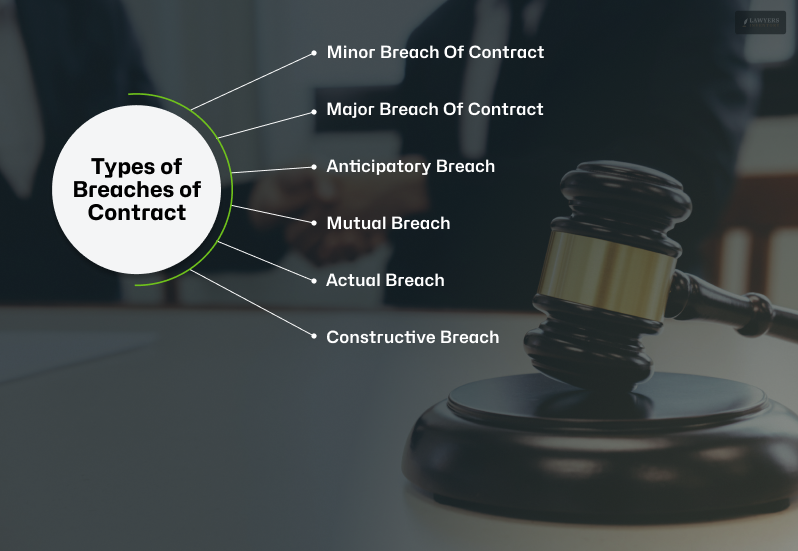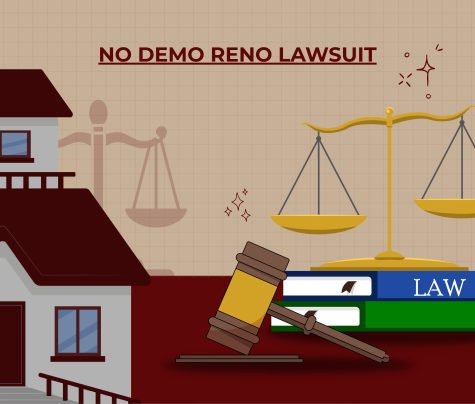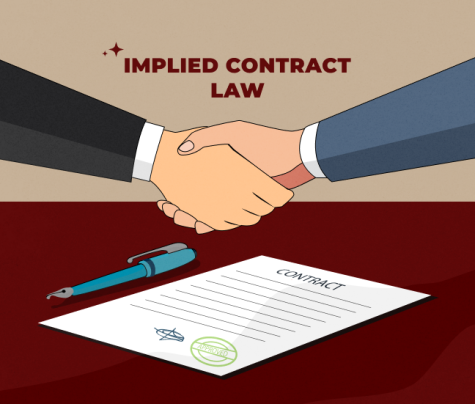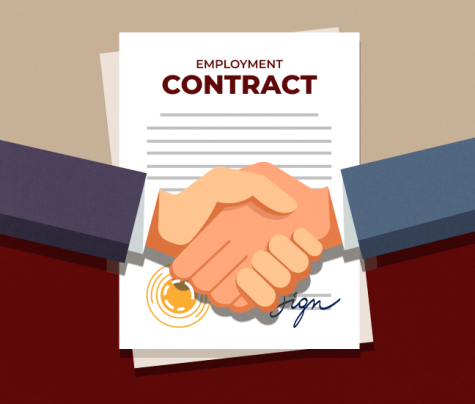
Have you been wondering about what the meaning of “contract law breach” really is?
Just imagine a scene where you exchange agreements, shake hands, and feel you have an official contract in place. What happens, though, if the other side breaks their half of the agreement?
When one party fails to perform its end of the bargain, leaving the other frustrated and unclear about what to do next, we call this a breach of contract.
It’s a prevalent problem that may result in monetary losses, strained interpersonal relationships, or even legal disputes. But there is more to it!
If you were wondering how everything about contract law breaches can be simplified, I have you covered! In this blog, I will explain the various forms of contract breaches, the penalties you could face, and more.
So, keep reading this blog until the end, and thank me later…
What is a Breach of Contract?

You must have seen how, in most cases, business partnerships that had started on a good note crumble. This usually arises from certain disputes that both parties must follow as part of their contract.
In legal terms, this is what Breach of Contract is all about!
When two or more parties join and become bound in a partnership, they must sign a contract. This contract states all the rules— big and small— that everyone in the partnership must follow.
So, if that is the case and the parties sign the contract on a mutual understanding and faith, why would there be a dispute in the first place? I have the correct answer for you!
For instance, consider a case in which one party in a partnership accuses the other of not upholding all the terms of a contract they had signed.
This legal dispute occurs when one party in the partnership cannot fulfill the obligations specified in the particular contract.
Now, this failure can be related to anything. It might occur because one party failed to deliver services or other things on time.
Additionally, it might result from needing help to maintain the product quality as promised and decided upon by the parties.
It might be interesting to learn that this contract law breach can occur in both written and verbal/oral agreements.
In case of such a breach, the parties involved might try to resolve the issue among themselves. If not, then they are free to take it to the court.
Furthermore, while a breach of contract is not a crime, and no one can be jailed, you might have to pay financial compensation1.
Types of Breaches of Contract

Now that you know what a contract breach is and why it might occur, you need to understand precisely how many contract breaches there are.
I have covered what you need to understand if you are trying to understand contract breaches and what damages they might cause! There are two main types of contract breaches: Minor and Major. However, these are not the only ones.
Now let us take a look at both of these closely:
1. Minor Contract Law Breach
The first and most prevalent type of contract breach is minor, also known as a partial breach.
It happens when one party breaches a small section of the agreement, but it doesn’t affect the overall goal of the contract; the other party can still accomplish their goals.
Imagine a minor scratch on your car; it may be annoying, but it doesn’t affect its running ability.
In a minor breach, the injured party may file a lawsuit for damages, but they must still fulfill their obligations under the agreement.
2. Major Contract Law Breach
Second, a Major Breach is when there is a significant violation. Often known as a material breach, this constitutes a grave breach of a substantial section of the agreement.
This kind of violation strikes at the core of the contract and prevents the opposite party from accomplishing its objectives.
I’ll continue with the car example now. It’s worthless in this instance, much like an automobile with a damaged engine.
In the event of a significant violation, the aggrieved party may be released from their contractual responsibilities and may file a lawsuit for damages. Contract termination frequently results from these violations.
3. Anticipatory Breach
The next one on this list is interesting. It is the Anticipatory Breach of Contract. This happens when one of the two parties has already announced they plan to breach. That’s right!
Now, you might be wondering how this works. This type of breach of contract can result from a statement made by the party.
It can also be because of some action suspicions that they will not keep their word or fulfill what is due to them.
In simpler words, this form of breach is like a warning sign for the other party. Based on this, the other party can sue or take other legal action before the breach occurs.
4. Mutual Breach
Fourthly, there is a Mutual Breach. This occurs when both parties involved in the contract fail to fulfill the clauses of the contract law.
In a case of mutual breach, neither party can be said to be at fault. This means that neither can sue the other for the damages caused.
Such a breach is mainly due to situational changes that must have surrounded the agreement, making it impossible for them to deliver what needed to be done.
5. Actual Breach
As the name suggests, a breach occurs when one party fails to keep their promises per the agreement. This is the exact opposite of an anticipatory breach.
When it comes to an actual breach of contract, the breach has taken place, unlike in the case of an anticipatory breach, where the breach is anticipated.
This breach mainly happens because of a missed payment, a failure to provide some service or delayed delivery. And yes, since this is a breach of contract in the truest sense, the other party can take legal action.
6. Constructive Breach
Last but not least, we have a constructive breach of contract. This kind of breach happens when one party’s actions make it impossible for the other to fulfill or adhere to the obligations.
It is sometimes confused with the idea of undue influence in contract law. Similar to mutual breach, this type of breach also occurs because of changes in circumstances.
Specific actions that might have undermined the fulfillment of the agreement’s demands are generally the reason behind these changes.
Can You Avoid a Breach of Contract?

Yes, you read that right. You can avoid a contract law breach.
It is possible to prevent a contract violation, but certain things must be considered. When someone breaks a contract, they violate the agreement because they failed to perform their end of the bargain.
Remember that to avoid a lawsuit resulting from a breach, you must select the people carefully. You must research the legal history2 of the party you will partner with.
Take these easy actions to prevent this:
- Recognize the terms and responsibilities of the contract.
- Keep lines of communication open to prevent miscommunication.
- Establish reasonable timelines and goals.
- Meet your commitments on schedule and by the established criteria.
- When issues do come up, deal with them immediately and work to create a win-win solution.
- Consult a lawyer if necessary.
Remember, prevention is key! Take initiative, and don’t count on things to happen independently.
By being aware of your responsibilities and speaking clearly, you can maintain a good rapport with the other party and prevent a breach of contract.
Furthermore, having a well-written contract with explicit expectations and penalties might aid in preventing violations.
It functions similarly to a roadmap that directs both parties toward a fruitful collaboration.
You can save yourself the trouble and expenses of a contract violation by being aware of your obligations and acting to fulfill them.
Legal Remedies and Damages of a Breach of Contract

The court’s role in a breach of contract is to ensure that the injured party receives just compensation. There are various ways to do this.
Restoring the injured party to the financial situation they would have been in had the contract not been violated is the primary objective3.
This typically means that the injured party will receive monetary compensation from the party that violated the contract.
Usually, the amount granted is restricted to what is written in the contract. Unlike in other kinds of lawsuits, extra punitive damages are rarely awarded by courts.
This is due to a legal concept known as efficient breach. In some instances, breaking a contract and receiving damages is preferable to making someone stay in a binding agreement that no longer benefits society.
Wrapping It Up!
In case you were searching for the meaning and consequences of breach of contract, I hope this blog has been of help to you. If you have any other queries, please let me know.
All you need to do is scroll down until you reach the bottom of the page. Then, leave your suggestions and questions in the box below. And I will be there to answer them all for you!
Citations:
- Legal Information Institute: It is an independently funded project of the Cornel Law School, which gathers and publishes legal information for the public. ↩︎
- Investopedia is a highly trustworthy site that aims to simplify information that would be helpful for the financial aspects of the readers’ lives. ↩︎
- Thomson Reutors is a source for trusted content. With the help of their subject matter experts, you can find accurate information in legal and accounting field. ↩︎
Read Also:
- All You Need To Know About Procurement Contracts
- All You Need To Know About Contract Repository
- What Are the Elements of a Contract?











0 Reply
No comments yet.